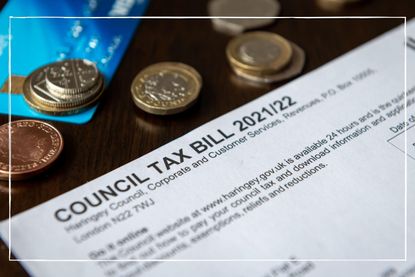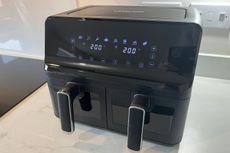When will I get paid the £150 council tax rebate? Eligibility and payment process explained


Many are wondering when will I get paid the £150 council tax rebate? This follows a government announcement in February to help ease the pressure on the rising cost of living.
Recently resigned Chancellor Rishi Sunak announced a £9 billion energy crisis support package in early 2022. This included a £150 council tax rebate for those on the lowest council tax bands A to D. “The council tax rebate was considered a relatively quick and easy way of getting £150 to families to help them deal with the enormous increases in the cost of living,” says Sarah Coles, personal finance analyst with Hargreaves Lansdown. “It’s a useful start and will soften the blow for a few months, but won’t come close to covering the extra cost of energy.”
Millions of households are currently face a wave of price hikes right now as the cost of living rises at its fastest rate for thirty years. So, the council tax rebate is a very welcome discount. We explain what the rebate is and if you will get it.
Bear in mind that this one-off rebate is different to a council tax refund that you could be due if you have overpaid your council tax.
Will I get a council tax rebate?
Around twenty million homes in England will qualify for a £150 council tax rebate. Whether you get this ‘one off’ payment will depend on your council tax band, which is based on the value of your home. Homes within the lower council tax bands between A to D will all get the £150 rebate.
Some households within property bands A to D - where occupants don’t pay the full rate of council tax - because of a single person 25% discount will also be eligible for the full £150 rebate. The only exceptions are those with a second property within these bands. And the council tax rebate is not payable on empty properties.
Within Scotland, nearly two million households, will be in line for a £150 rebate, which, as in England, is payable for properties in council tax bands A to D. It will also apply for homes within these bands that incur council tax reductions.
GoodtoKnow Newsletter
Parenting advice, hot topics, best buys and family finance tips delivered straight to your inbox.
In Wales, properties within bands A to D will get a £150 payment. Those who are eligible for council tax reductions, regardless of their property band, also qualify.
When will I get paid the £150 council tax rebate?
The UK Government have not confirmed a specific date but instead have stated that the council tax rebate will be "paid as soon as possible from April". The rebate payment is being organised by local authorities and households will receive the payment automatically - direct to their bank account.
According to the Local Government Association (LGA) those in England and Scotland who pay their council tax via direct debit will likely receive their payments first. Whilst those who pay manually are likely to be contacted first by their local council to sort out the repayment. Similalrly those who pay manually in Scotland will instead receive the £150 as credit towards council tax bills.
The Welsh Government is currently working with local authorities on the rebate scheme and further details on how the money will be paid, are yet to be announced.
The good news is that those who are eligible – council tax payers living in band A to D homes - need not apply to receive the rebate. The refund should just appear in your account in time. If you have any concerns though, you can always contact your local council for further information.
If you are struggling to pay your bills, despite the council tax rebate, make sure you read our guide on what to do if you can't afford to pay your council tax.
How to find out your council tax band
If you’re unsure which council tax band you’re in and whether you’ll qualify for the £150 rebate, there’s two easy ways to find out. You can either dig out your most recent council tax bill, which will have details of your banding, or use a postcode checker tool.
For properties in England and Wales you can check your council tax band online and within Scotland go through the Scottish Assessors Association.
Who is excluded from the rebate?
Households on higher council tax bands, from ‘E to H’ don’t qualify for the £150 rebate. However the Chancellor said local authorities in England will be given a, “discretionary fund of nearly £150 million to help lower-income households in higher Council Tax bands, and households in bands A-D who are exempt from Council Tax”.
If you fall into one of these categories, it’s worth contacting your local authority to ask about the additional financial support.
When it comes to homes in Scotland, Wales and Northern Ireland, these devolved governments are being given a £565 million pot of cash, as part of the Council Tax Energy Rebate which they can use in their own way for financial support.
How to appeal a council tax band
If you’re on a higher, (more expensive), council tax band than your neighbours, yet the properties are of a similar size and design, you may have a case to appeal against your council tax band. You can start the process of challenging your council tax band through the Valuation Office Agency. It’s free to do this, regardless of the outcome. Before you start, it’s worth doing some detective work, especially as you may be asked to provide evidence.
Check which band your neighbours are on. For properties in England, this can be done through the Government website and the Scottish Assessors Association for Scotland.
You should also find out your property value in 1991, when council tax bands were set, which is easy to do using an online calculator like Nationwide’s House Price Calculator.
Check this back against the government's advice on assessing council tax bands and if it doesn’t match the one you’re currently on, you may have a case.
Last year, over 40,000 households challenged their council tax band, according to the latest Government figures. One in three cases, this resulted in bands being lowered.
Video of the Week
-
 I tested the Lakeland Dual Basket air fryer and it made midweek family cooking a breeze
I tested the Lakeland Dual Basket air fryer and it made midweek family cooking a breezeYou can’t go wrong with the dual basket air fryer by Lakeland complete with easy-view windows to ensure burnt food is a thing of the past…
By Jessica Dady Published
-
 Reframing one simple habit could get your sex life back on track after having a baby, new research shows
Reframing one simple habit could get your sex life back on track after having a baby, new research showsMany parents struggle to get their sex life back on track after having a baby, but new research has shown how one simple habit could make all the difference.
By Ellie Hutchings Published
-
 'It isn’t a holiday – it is crucial bonding time' - 70% of dads can't afford to take two weeks paternity leave, according to new research
'It isn’t a holiday – it is crucial bonding time' - 70% of dads can't afford to take two weeks paternity leave, according to new researchThe research also found that only 14 per cent of fathers were ready to return to work mentally after taking their paternity leave
By Sarah Handley Published
-
 Two-child benefit cap 'pushes children into poverty' - campaigners urge government to scrap 'cruel policy' that impacts 1 in every 10 children
Two-child benefit cap 'pushes children into poverty' - campaigners urge government to scrap 'cruel policy' that impacts 1 in every 10 childrenThe controversial two-child benefit cap has met with strong opposition since its introduction in 2017
By Sarah Handley Published
-
 Gen-Z could be costing their parents £1,300 a year, by refusing to do this one thing (but it's not always their choice)
Gen-Z could be costing their parents £1,300 a year, by refusing to do this one thing (but it's not always their choice)It's not just parents who are facing the additional costs, the costs for Gen Z could be even higher
By Sarah Handley Published
-
 More than half of parents want to do this important thing for their kid's education but can’t afford to, according to new research
More than half of parents want to do this important thing for their kid's education but can’t afford to, according to new researchPressures on the family budget are preventing parents from paying for educational support outside of school
By Sarah Handley Published
-
 75% of mums feel guilty buying things if they earn less than their partners, according to social media poll, and the comments section was part heartbreaking, part inspiring
75% of mums feel guilty buying things if they earn less than their partners, according to social media poll, and the comments section was part heartbreaking, part inspiringSome mothers felt guilty for spending their partners money, while others saw it as household money instead
By Sarah Handley Published
-
 10 best zoos in the UK based on ticket prices, reviews and value for money
10 best zoos in the UK based on ticket prices, reviews and value for moneyThe best zoos in the UK have been determined based on a number of key factors, include prices, popularity, Trip Advisor ratings and how many animals they have
By Sarah Handley Published
-
 Child benefit is finally going to be made fairer - here's what's changing and when
Child benefit is finally going to be made fairer - here's what's changing and whenChild benefit is finally going to be made fairer - here's what's changing and when
By Sarah Handley Published
-
 Mum-of-three Helen Skelton shares 5 free and easy ways to keep kids entertained in the Easter holidays (and they all involve one thing)
Mum-of-three Helen Skelton shares 5 free and easy ways to keep kids entertained in the Easter holidays (and they all involve one thing)Presenter Helen Skelton has revealed how parents can keep costs low when keeping the kids occupied during school holidays
By Sarah Handley Published